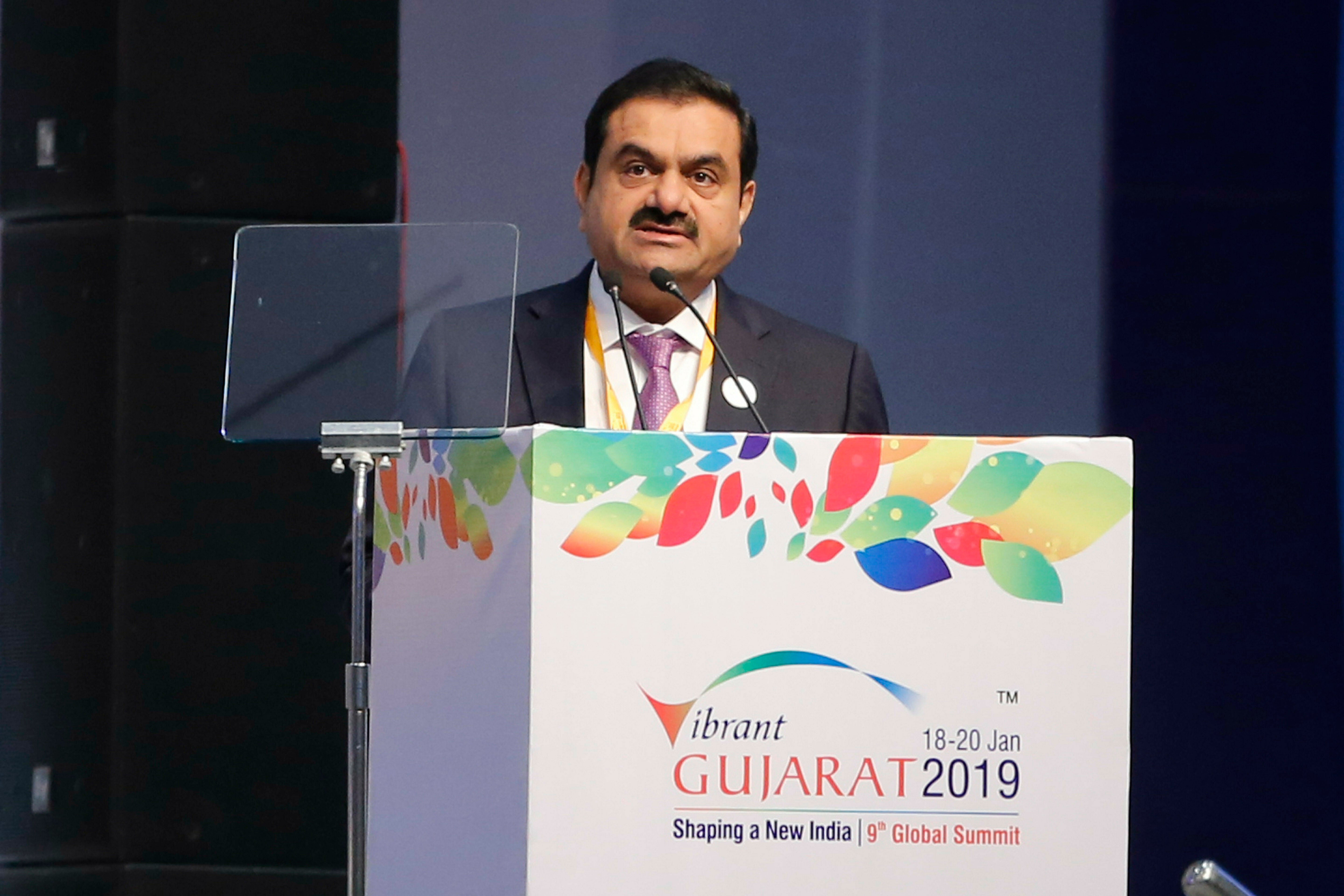India’s richest man says linking his success to Narendra Modi makes him an ‘easy target’
Adani attributes his group’s success to policy and institutional reforms that began three decades ago

Gautam Adani, the world’s third-richest person, said his expanding business empire should not be linked to any one political leader, dismissing allegations that he benefits from close ties to India’s prime minister Narendra Modi.
The Indian billionaire and the world’s biggest wealth gainer in 2022, said in an interview with local media outlet India Today on Wednesday that he is an “easy target” because he belongs to Mr Modi’s home state Gujarat.
“Prime minister Modi and I are from the same state. That makes me the easy target of such baseless allegations... It is unfortunate that such narratives are being pushed against me,” Mr Adani said.
The 60-year-old Indian chairman of the Adani Group, who briefly dethroned Amazon founderJeff Bezos from the spot of the second richest man on the planet earlier this year, claimed his group’s success over the years stemmed from policy and institutional reforms that began more than three decades ago and “not because of any individual leader”.
“These allegations suffer from recency bias, seeing our group’s success through a short-term lens. The fact of the matter is that my professional success is not because of any individual leader but because of the policy and institutional reforms initiated by several leaders and governments during a long period of over three decades,” he added.
More recently, he acquired a majority stake in news channel New Delhi Television Ltd (NDTV), leading to speculation over the future of one of India’s last bastions of independent corporate media outlets.
NDTV was part of a shrinking news space critical of current dispensation at New Delhi.
Mr Adani now controls 64.71 per cent of the company. He already held 37 per cent after an open offer and acquisition, despite several unsuccessful attempts by NDTV to block the takeover citing regulatory restrictions on moving shares.
Ravish Kumar, a senior NDTV executive editor, indirectly criticised Mr Adani’s acquisition without referencing him in a biting critique that also served as an announcement of his resignation from the channel.
Mr Adani, a college drop out from a middle-class family, fits the government’s need for “national champions” both to meet domestic goals and as a private sector partner in strategic projects outside India, said Mihir Sharma, an economist at the Observer Research Foundation, a Delhi-based think tank.
“It isn’t that government policies are shaped by the Adani Group so much as the Adani Group is a willing and able partner in what the government decides are its priorities,” Mr Sharma said.
Since Mr Modi became prime minister in 2014, at times reportedly using a private jet owned by Mr Adani to go for election campaigns, the tycoon’s net worth shot up nearly 2,000 per cent to $125bn, according to Bloomberg’s Billionaire Index.
The rapid diversification of his empire – that includes winning multibillion dollar contracts to build ports, highways and power plants – has closely been scrutinised by critics.
The industrialist’s ambitions also include developing drones and ammunition, key to the government’s goal of boosting military-related exports to $5bn, while slashing costs for expensive imports, reported the Associated Press.
The tycoon has also invested in agriculture, a huge priority for Mr Modi, given the importance of farmer votes.
Mr Adani, however, said his entrepreneurial journey began about three decades ago under the premiership of Rajiv Gandhi, the grandson of India’s first prime minister Jawaharlal Nehru.
“Many will be surprised to know that it all began during the tenure of Rajiv Gandhi as prime minister when he first liberalised the Exim (export-import) policy... But for Rajiv Gandhi, my journey as an entrepreneur would never have taken off,” he said.
Mr Adani claimed his career got a second big push in 1991, under the leadership of PV Narasimha Rao and finance minister Manmohan Singh, widely recognised for liberalising the Indian economy.
“The second big push I got was in 1991 when the duo of Narasimha Rao and Manmohan Singh initiated sweeping economic reforms. Just like many other entrepreneurs, I too was a beneficiary of those reforms,” Mr Adani explained.
He credited former Gujarat chief minister Keshubhai Patel for providing the “third turning point” of his career, who developed coastal areas, prompting Mr Adani to start working on the first port project under the Adani group.
“Until then, all development in Gujarat was only around [National Highway 8] from Mumbai to Delhi via cities like Vapi, Ankleshwar, Bharuch, Silvassa, Vadodara, Surat and Ahmedabad. He [Patel] was a visionary and focused on coastal development – and it was that policy change that took me to Mundra and prompted me to build our first port. The rest, as they say, is history.”
“Gujarat witnessed a massive focus on development” when Mr Modi became its chief minister, said Mr Adani as he went on to appreciate his premiership.
“His policies and their implementation went on to not only change the economic landscape of the state... it also allowed industries and employment to take off like never before.”
“Today, under his able leadership, we are seeing a similar resurgence at the national and international levels, where a new India is now asserting itself,” he added.
Additional reporting by agencies
Join our commenting forum
Join thought-provoking conversations, follow other Independent readers and see their replies
Comments
Bookmark popover
Removed from bookmarks